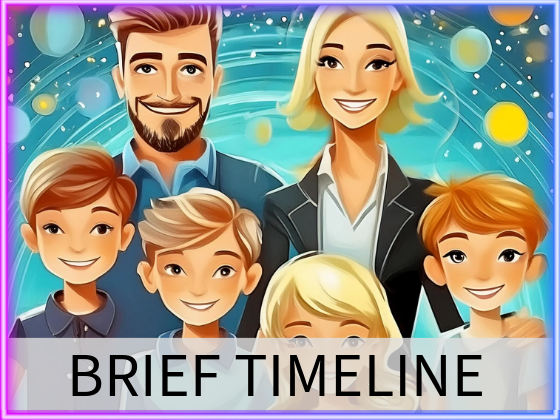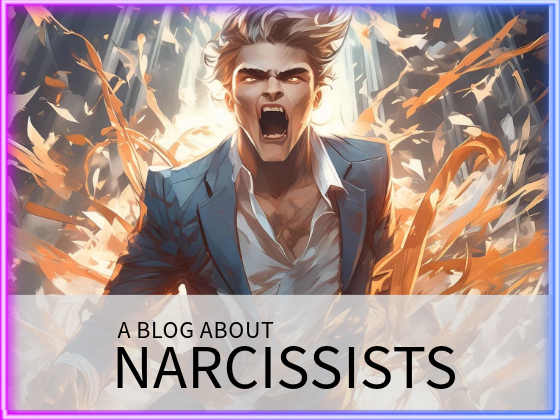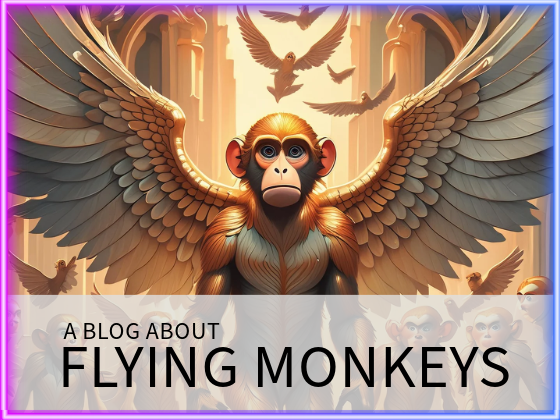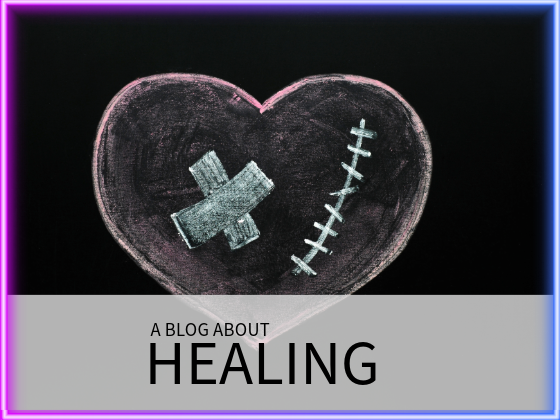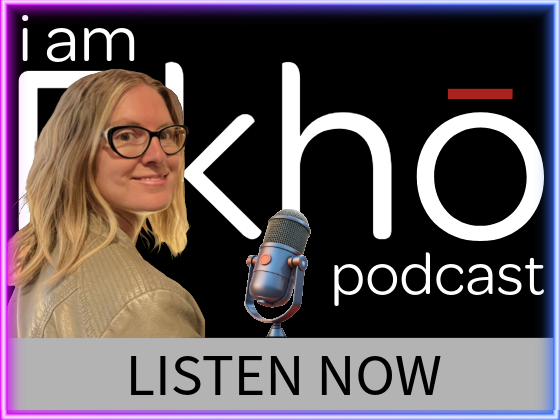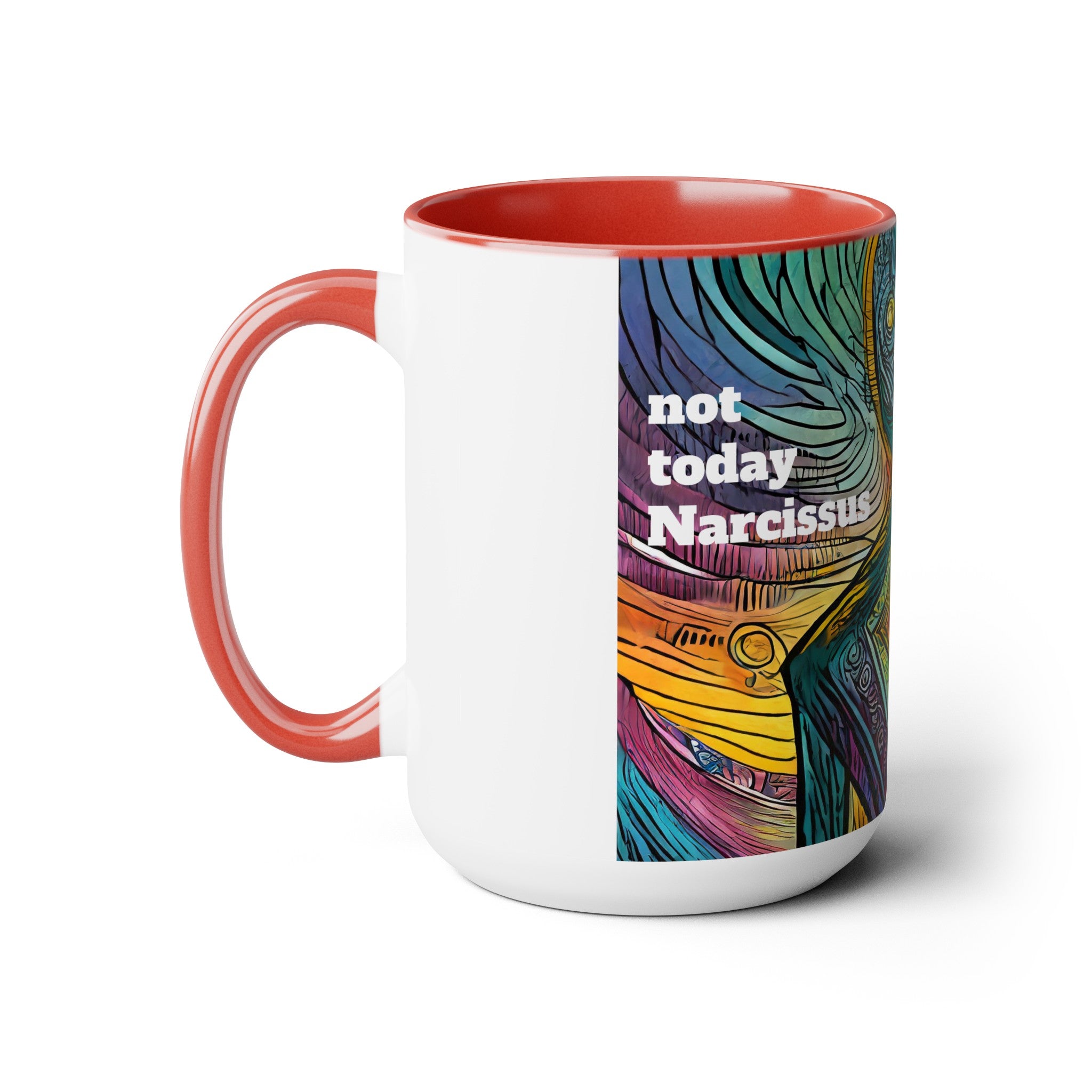008: Understanding Trauma in Pathological Love Relationships with Sarah Schewitz
i am Ekho Podcast Studio (00:00.354)
This is an oasis in a dry desert. Like it feels so good. And your brain gets addicted to it. Just like it went to a drug. Whenever they're being nice and kind and attentive to your needs and that sort of behavior, that feels good. It does feel good.
i am Ekho Podcast Studio (00:25.826)
So I'm Dr. Sarah Shepitz. I'm a psychologist. I have been practicing for about 15 years and my practice focuses almost exclusively on healing attachment trauma, whether that's in the context of individual therapy or therapy. So what is a pathological love relationship? So a pathological love relationship or a PLR as we'll call it for short.
is essentially what you would have heard talked about as a toxic relationship in kind of layperson terms. But it is this has come out in research in recent years, actually, because there's so many people speaking out about their experience with narcissists or sociopaths or being in these toxic relationships. And there's a lot of great information coming out, but there's also a lot of misinformation coming out.
And so this organization decided we're gonna start to research this and really look at it and say, what are these relationships and how do we help people heal from them? So that's where these factors come from. And what they came up with is there's four identifiers that tell you you are in a PLR. The first one is that one of the people in the relationship has to have a cluster B personality disorder. So that would be antisocial personality disorder.
borderline personality disorder, histrionic personality disorder, or narcissistic personality disorder. The second qualifier is that the relationship has to have dramatic and erratic tendencies. So toxic, chaotic, that kind of thing. The third qualifier is that the survivor has special super traits that make them more susceptible to doing a victim of a PLR.
Fourth is that the survivor has trauma symptoms. So if all those things are present, you are what's in, as identified by the research, a patholact of the look. Okay, that's very helpful. Let's start diving into each of those. So the first one is, that at least one person, maybe both, right, have to have a cluster B personality disorder. Now, I'm sure people ask you this all the time, but
i am Ekho Podcast Studio (02:48.93)
Does it have to be diagnosed because a lot of times people with these disorders don't seek help. Yeah. They don't seek help or they're even very good at it. I've heard and I've kind of seen it as kind of fooling people, even trained people don't necessarily see it right away. Right. Yeah. Or if we do, we can't call it out in the context of there's so many reasons why, right? Like either in couples therapy, because you're treating the relationship and not an individual.
or an individual therapy because you lose, you kind of lose the client and the relationship then. And so there's this balance as a therapist, but yeah, you're exactly right. happens. But if you're in one of these and you think you might be dating someone with a cluster B personality disorder, I think some things to look for just for your own kind of self diagnosis, if you will. A lot of people with cluster B, so it's called
dramatic and erratic personality disorders category. And so some common features are that these folks have unstable lifestyles. They're dramatic and erratic, right? There's lots of defensiveness, denial, lying, projection of blame. So you bring up a concern with them and it's either they're turning it around on you or they're saying that's not true.
you're wrong, you're delusional, or here's what, here's why I didn't mean that. Like I had the best of intentions. Yeah. These folks often have a lot of interpersonal dysfunction. You know, like all of their exes were crazy or they were just like big dramatic breakups or big dramatic fights throughout their relationships. That's often a red flag that you're dating someone with a dramatic and radical personality style.
Do they often have problems with addiction? Do you see people that or is that not common with these sort of cluster B personality disorders? Yeah, it's not part of the criteria, but certainly, you know, just in terms of anecdotal evidence, yes, you're going to see people because part of what is true of cluster B personality is that they have a hard time regulating their emotions and a hard time kind of regulating their self and holding a clear sense of self.
i am Ekho Podcast Studio (05:09.422)
So folks who have a hard time regulating emotions often turn to substances as a way to soothe and regulate. Particularly if they're highly defensive and can't look at their emotions and go, wait, maybe I should work on this. Then they'll say, no, I'll just have 10 drinks and forget about it. Mask it. Yeah, they mask it with.
alcohol they drowned it with alcohol or whatever you know whatever that or whatever yeah exactly substances no i've seen that as well and that rings very true and then you also said that they they don't take responsibility and they maybe even will turn on you is that sort of like what you hear about darvo what's darvo then
That's deny. They did not. you, you approach them with something like, Hey, were you drinking when you weren't supposed to? deny, then they attack you. Then they reverse the victim of offender to kind of put you on trial for it. Yeah. For something like, how could you not trust me? Or, or, you know, the classic example is you catch them look sexting or doing something nefarious with texts. And then they get mad at you for looking at their phone versus, you're cheating on me. You know, something along those lines. Yeah.
Yeah, that's complete deflection. Absolutely. Yeah. I haven't heard that acronym. That's a great acronym for it. But yes, that's exactly that defensiveness and deflection and kind of turning it back around and you making you feel like you're the one that has the problem. Yeah. Yeah. And just this inability to accept accountability because like we all mess up. We all do things. I've done things in my life I'm very embarrassed or ashamed of. most, I don't know about most people. feels to me like
the majority of people will eventually own up to it. But it does seem like people with these cluster B personality disorders, like they will never admit fault. I once heard a really great explanation about the difference between someone who has one of these disorders and someone who has defensiveness. Because sometimes you might just be with someone who's really defensive and they have, you know, have some work to do, but they don't have a personality disorder. The difference is that
i am Ekho Podcast Studio (07:16.684)
with a personality disorder, their whole personality is created around this. Like it's created to defend against being found out that they're wrong, they're not good enough. They actually do feel inadequate deep down, but you would not usually know that. So their whole personality is to protect against people figuring this out. Whereas somebody who's just being defensive in the moment, like you said, they can still
see things about themselves and recognize things. Eventually. That's super interesting that their sort of whole persona is to make around this defensiveness. And do you find like commonalities for people with cluster B personality disorders? that, I know there's always exceptions, but is there a lot of trauma there or is it like childhood just no accountability sort of the golden child or what do you see as sort of trends in childhood? Anything? Yeah.
All of that. And just, you know, lest you think being the golden child is all fun and games. That is also attachment trauma. Because kids who don't have boundaries and kids who don't have anything to like push up against and teach them what's appropriate and what's not, that's actually really hard for them, believe it or not. They need structure and guidance and they need that kind of like those boundaries. So
whether you're a golden child or whether you're a scapegoat, which is usually the two scenarios that are going to create a personality disorder. You are a projection of your parents' wants and needs in some way, and you're not being seen for who you authentically are, and the good and the bad. It's like either you're being seen for the good pretty exclusively or the bad pretty exclusively. that would be hard on the child. It sounds like to be the golden child would be great, but there's
Like you said, one, there's no boundaries or any sort of pushback. So you understand right and wrong. And second of all, I do think there's always, at least it feels to me like this obligation to perform, you know, to perform like you have to be the quarterback or the cheerleading, you know, captain, or you have to be the best at this or the best at that or this or that, instead of just being able to be yourself. That's right. Yeah, exactly. And you feel this internal pressure of,
i am Ekho Podcast Studio (09:41.708)
being what your parents or the parent want you to be. And you're right. is maybe always the... I think it is always, right. The parents, seeing you as a reflection of them and kind of putting their own desires onto the child. Yeah. So that's difficult. Okay. So that's the first aspect of these pathological love relationships, PLRs. I haven't heard that term before, but I love it.
The first one is one or both people have a cluster B personality disorder. Do you see often where it's both people or just one? What's more common? I would say more common is just one, but definitely possible where one person has narcissism and the other has borderline personality disorder. That's a super uncommon pairing, but more often you'll see somebody with
you know, like narcissistic personality disorder and then somebody who's got like a dependent personality disorder, which isn't in cluster B, it's in a different cluster. It's a different cluster. Okay. Yeah. Okay. So then the second thing is it's dramatic and erratic the relationship. Is this like the on again, off of the ups and downs, that sort of relationship? Because that's exactly what I had in my relationship.
where you break up together, break up, get out together, and you're either like madly in love or you're not talking to each other. Yeah, it's the cycle that I'm sure you've discussed with your, you know, on your blog as well as with other guests like that love bombing and then the devaluing and then the discarded. Wow. So, so is the person with the cluster B personality disorder
sort of initiating this cycle and the other person's along for the ride or are they both working together subconsciously during this cycle? Well, you can't really have a cycle with just one person, you know. Because they have to leave, know, just be like, I'm done, I'm out of here. Yeah. That's right. That's right. Yeah. If you if you left, there would be a cycle could be though, you know, something keeps happening. Of course, the love bombing is what keeps happening in that honeymoon.
i am Ekho Podcast Studio (11:56.078)
that kind of like reeling you back in with, I love you, I'll never do this again. You're my person, how could I ever hurt you? I promise it'll never happen again. All that stuff. Understandably, the victim wants to believe them and wants to get back to that feeling of I'm the most important person in the world here and my partner really does love and accept me like who does want. Exactly, yeah. But yeah, their own trauma often keeps them there.
despite evidence to the contrary that they're not the most important person or they aren't being treated with respect. you're right. They love bombs. like even whenever, like at least in my situation, when you're getting ready, it's like, this isn't working. This is you're at rock bottom. They pull you back in and they might future fake like, this time this is going to happen or we'll do this or this or this. But, it's always just
They give you that hope so that you come back and they give you that hope so you come back and they give you that hope so you come back because it does feel really good whenever they are, for lack of a better term, love bombing you whenever they're being nice and kind and attentive to your needs and that sort of behavior that feels good. It does feel good. And it's usually feeling a void that the victim has of, you know, feeling not feeling special growing up or not feeling good enough or not.
feeling chosen, maybe they've been abandoned. And so when you get that from a person who has some of the traits that your caretakers did, it's like, this this is a waste this in a dry desert, like it feels so good. And your brain gets addicted to it, just like it went to a drug. And I've had even people on the podcast that said it's just as strong of an addiction as a like a heroin or cocaine addiction.
And there's even maybe some physical evidence that it actually changes your brain. Have you seen that? Yes, that's what this research is looking into. And it's absolutely true. One of the biggest things that happens to victims of PLR is that they have this cognitive dissonance. And that's the brain change you're talking about. Like there's the all good side of my partner and the all bad side and they don't connect. They don't, yes.
i am Ekho Podcast Studio (14:16.59)
The same thing happens in addicts actually. There's the consequences of my use and the desire to use and those things don't connect. And that's what keeps the addiction going. You're right. That is, I don't know why I didn't think of it, but that is like the same actual thing behind it all that's going on. And I've written blogs about Jekyll and Hyde, how he was Jekyll and Hyde. I've written about the cognitive dissonance like
I have this person, I have this person, I can't make sense of it. Like what's going on? And that is what keeps you addicted because, or at least a part of what's going on, because you're trying to make sense out of it. is there something behind that? Like whenever your brain or you are confronted with two things that can't simultaneously be true, what do you do? What, what, what does one do? Yeah. So this is where we kind of have to talk about the nervous system too. And, um,
being in cognitive dissonance is super dysregulating to your nervous system. So you're in this constant state of very often fight or flight or shutdown. And whatever, whether it's fight or flight or shutdown, the prefrontal cortex, the part of your brain that has access to logical thoughts and decision-making and ability to control your emotions shuts down. the instinctual brain starts running the show.
And what you have access to in the instinctual brain is fight, flight, breathe, shut down, right? Like fawn, yeah, shut down. Well, those are actually so fawn and shut down, yeah. cognitive dissonance is so disorienting. People, really successful, smart, and amazing people fall apart because they're in this constant instinctual brain.
and their adults' health isn't online. And it did feel like that. felt like I'm not thinking logically anymore. I'm just like this scared animal that's just reacting to things rather than actually logically responding. And I've said this before, you might think this could only impact certain types or demographics. I'm financially independent. I was never dependent on him financially. He's not the father of my children. So I wasn't trying to keep
i am Ekho Podcast Studio (16:37.39)
my kid's father in the picture. I have my own house. I have my own job. I'm independent. I'm educated. No one looking in at me would ever think that something like this could happen, but I was 100 % addicted to this sort of behavior and feeling cognitive dissonance. So I think it can happen to anyone.
Yes. And so this is one of the big things that the research is showing is that in the past, there's been this narrative that like the people who get in these relationships are codependent. have some level of learned helplessness. They have some level of trauma in the past that has gotten them into this relationship. And like essentially they are broken in some way, or form. And that's why they're standing for this treatment.
Well, that has caused a lot of harm in how it's treated because there's women who, women and men, the women are definitely more typically the victims here who are, don't fit that mold. They're absolutely smart, successful, not dependent on their partners financially, hold really high prestige jobs and have great careers and yet are still susceptible. Yeah. And you can't treat.
those two types of folks the same way, because they're very different personalities and they're very different circumstances. And you're not addressing, like you're almost, I can't think of the right word right now, but you're not giving credit to how hard that relationship was. You're almost like blaming it on something in the victim where, and that's more damaging. That makes sense. Yeah. The truth often is I was fine.
until I got in this relationship, which turned my world and my brain upside down, changed my attachment style, it changed the way my nervous system functions, it changed my brain because of cognitive dissonance, it changed my functioning in the world. Sometimes the relationship is the reason all that happened. It wasn't present for the relationship.
i am Ekho Podcast Studio (18:56.846)
That does change the narrative and it makes you think about it differently because you're right. Often what you hear is there's something flawed in that victim, right? There's something inherently wrong or flawed or something in that victim. And then that's what allowed them to get into this relationship and remain in this relationship. Whereas that may be, I don't like even using the word flawed, but there could be some past trauma or tendencies moving into this. But.
that person could have been perfectly healthy and fine and not had any of this. And that relationship with all this cognitive dissonance and abuse and especially its emotional and mental abuse, I would say, and it can be physical. It did get physical in my case and in many other people's case and all the different kinds of abuse. But that is what ended up making that person not have a secure attachment style or face all these other
consequences of that. That's right. Yeah, and the traits, the super traits that I think we'll get into shortly are the reason they're the commonality that have come out in research is women and men who have these traits, they are more likely to be victimized. And these traits are actually great qualities in the right context. They're qualities that make you an incredible partner.
to the right person. I don't know what these traits are, but I can tell you some of my traits and I'm just curious of these. I'm incredibly loyal to a fault. I'm a people pleaser. I'm empathetic. I try to... Am I naming the traits? You're literally like, I'm looking at my list and I'm like check, check, check. Okay. We're moving now into the third factor of these pathological love relationships are...
The commonality is you're saying the main thing is the traits in the victim or the survivor. So what are the some of these traits? So you so beautifully listed some of them, but there are some personality tests that psychologists use to just kind of identify where people are on the spectrum of certain traits in personality. One of them is called the big five personality traits.
i am Ekho Podcast Studio (21:18.446)
And it's a very common test that employers use to screen employees just to see like, how do I work best with this person? Are they more agreeable or less agreeable? Are they more outgoing or more introverted? That kind of thing. There's a lot of different facets to agreeableness, but overall what it means is you're really good at adapting to adversity and you can roll with what life has dealt to you quite easily.
So some of the facets of agreeableness that you already named is you're really trusting. So overall, you're like optimistic about how life is gonna turn out. You're optimistic about human behavior. Again, this is a wonderful trait under the right circumstances, but it also leads to a lack of vetting others. Folks who are high in agreeableness tend to be really humble. So they downplay their own accomplishments and they are gentle and well-tempered.
and they're warm and approachable. Again, awesome qualities, right? Like you would want a partner who has those qualities. And they also make you a little bit easier to target. exactly. I do. And I found that in myself all the time. put an awful lot. And I'm trying to be more mindful of that and a little bit more selective of who of my tighter with my boundaries. You know, I know that's a big word now.
But it's more selective with who I led in my life and how much I led them into my life. Yeah, it too gets the benefits of that because again, they're great qualities, but they're not everyone deserves that, you know, that trust and that, that attentiveness. So another one is empathetic. You already talked about that. People who are high in agreeableness tend to be peacemakers. They tend to be forgiving. They tend to be generous.
You can see how that just completely allows for coming back after really bad behavior and understanding their perspective. They tend to be more tolerant than others, so they have a high capacity to endure negative things. They tend to be more accepting of other people's viewpoints when they're different from their own and really skillful at dealing with people who are different from them.
i am Ekho Podcast Studio (23:39.47)
So again, you can see how somebody with these traits would be like, well, they just have a lot of trauma they're working through. And he had a really hard childhood. I know he has a good heart. He's dealing with alcoholism. That has to be really hard. You know, he has a lot of pressure on him. He had a lot of bad things happen to him in his past relationship, which who knows how much of that was actually.
to be honest. Yeah, exactly. So I'm like, no, I'm thinking like, did she really do all those things? Or are you kind of did you make that up? Like you've lied about me? Or did you do those things? And you're just saying she's the one who did that? a lot of projection that goes on isn't there? It feels at least to me like, I almost now think anything he accused others of he was actually doing. Yeah, yeah, that's probably true. Wow. Okay, so
These are the traits of the person in the relationship who is the survivor and who probably, although they could, doesn't have the personality disorder. Although they could because it can be two people with a personality disorder. But the survivor who is like, what the heck just happened to me? They will tend to have these traits or like nearly they always have these traits. Yeah. If it's a PLR, I mean, they have to have these traits for it to be a PLR.
That's one of the qualifiers. Some more of these victims super traits are that they're cooperative. So they have a really giving nature. They derive pleasure from helping others. They're willing to compromise. They're considerate of others' needs. Right. So again, you can see how great qualities and that you have for being maybe a little bit of a pushover at times. Yes. This is an interesting one that, you know, people are a little confused by sometimes.
They're really straightforward. And what that means is they're upfront, they're honest, they can provide. They're a little bit prone to like oversharing because of that, because they're like, whatever, I'll just say what's on my mind. Exactly. That's me. Exactly. I just say, you know, I'm not going to sugarcoat it. I'm not trying to manipulate or change anyone's opinion. I'm just going to say it. You know, it's like, yeah, why wouldn't I say it?
i am Ekho Podcast Studio (25:56.926)
Right. And also, why would this be a problem? And how could somebody like this be victimized, right? If they're super straightforward? Yeah. The reason why is because they tend to see the world, we all tend to see the world through our own lens. And so they assume their partners also being straightforward. Like, why wouldn't you just say what's on your mind? Why wouldn't you be telling me the truth? Of course, they are, you know, and so they, unfortunately, give a little too much leeway to somebody who
doesn't have that straight forwardness trait. can you do you you tend I tend to think everybody just tells it like it is they say what's on their mind you know why wouldn't you do that because yeah how else would you and I mean I know as a professional you you know much more than the average person about this but it's kind of natural that you would think that other people saw the world and behave the way you do. That's your framework reference you know so so I always think.
I tend to think people are very honest, even though that sometimes has burned me and I tend to think they're genuine and I tend to think they just say what's on their mind and how they feel. But narcissists are none of those things. Yeah, exactly. And not even just nurses, there's people who don't have that straightforward trait, you know, which a lot of people don't. You're right. Another one of the traits is self-directed. And this is where this and straightforwardness are where,
victims with these super traits really differ from the typical like codependent prototype, people who are self-directed have actually have high levels of self-confidence and self-expectance. They're used to feeling strong, they're used to handling things well. And this isn't normal for the typical codependent, right? Like they're often helpless and reliant on others. Not the case here. What makes them
helpless in these cases is being involved in the PLR and getting into that cognitive dissonance and losing their prefrontal cortex functioning. And then they kind of turn into that more helpless seeming victim, not because that already existed. I think that you're hitting so many nails on the head and I think it makes it also very hard for outsiders to even view you as a victim because they're like,
i am Ekho Podcast Studio (28:18.978)
This person is confident. This person is independent. How could they have been a victim of this? Because they are confident. Like, I think it makes it hard for other people to see you as someone who was extremely abused and manipulated. It also makes it harder for you to see yourself as someone like that because, you know, you see yourself as this like strong, confident woman. Yes.
And that actually even adds to the cognitive dissonance more because it's like, I'm this strong person. And also these things are happening to me that indicate I am not a strong person. Cognitive dissonance. What is it? I couldn't make sense of it. You're right. I couldn't make sense. It's like, why do I keep going back to him? Like in my more sober, insane moments, I know this person is harming me. This person is horrible for me. They're lying to me. They're manipulating.
And yet I kept going back. I think that that was adds, it definitely adds a layer to the cognitive dissonance and makes it way worse. And then, you know, as you said, you're no longer with your thinking brain, you're in your survival brain. And the other traits that are important is one, you said loyal. The victims who have these super treat traits are definitely loyal. They're committed to following through on things.
even if it's a crappy relationship, and they just don't give up easily. So again, like you can hear how these things make you such a great partner, a great employee, a great business owner, like in all areas, a great friend. In all areas of the world, these are things to be celebrated. Yeah, it's just, they're also things that make you a little bit more susceptible to being in a PLR and being really damaged by a PLR.
No, that makes sense because it feels like at least, and I don't think I'm imagining this, every employer I've ever had has loved me, has really, really like, I'm on top of things, I'm self-motivated, you don't have to micromanage me, I don't miss work, I'm really, and I'm very loyal to the, I mean, if they treat me nicely, I'm loyal to them in my work. Maybe even if they don't, I tend to stay maybe longer than I should.
i am Ekho Podcast Studio (30:37.036)
I have lifelong friends, I've been, people I've been friends with for all different stages of my life, whether it's when I was in the military or in grad school or even in high school that I'm still very close with today. In my other areas of life, these personality traits have served me very well, but they've also made me very susceptible to these not so great romantic relationships. Yeah. And then the last trait that,
on the big five personality trait is personality tests, should say. These folks are high on conscientiousness. And it's similar to a lot of what we've already talked about with agreeableness, but there is some differences. Part of being conscientious is you're a hard worker. So literally what you just said. And they tend to be prone to be workaholics and therefore, yeah. And therefore they miss a little bit more at home.
because they're just so focused on work. Sometimes they can't even like give attention to how crappy they feel at home or how unsafe they feel at home. They just deflect and go to work and, you know, feel good about the work they're doing. 100%. And even I've noticed being a workaholic for me as a coping strategy, like whenever I've gone through hardships, I've just poured myself into my work. Like I gave birth to twins who died. I went to preterm labor and they died.
And how I got through that, whether it's healthy or not, is I would work 12, 14 hours a day. I would make myself so busy that all I had time to do is work and sleep. And that's like for me, at least a coping mechanism. It's a way to feel competent when the world is falling apart around you. And even now, like, you know, there's a lot of political unrest in the world, or it feels like it, at least to me, I notice myself working more because I don't want to think about that too much.
It's a coping strategy for me in my life. Yeah. Is that normal coping strategy? Did most people not do that? It's a common one. It's not, yeah, it's not completely uncommon. work with, in my practice, I work mostly with high achievers, folks who are either, you know, C-suite executives or own their own business or high level creative. And that is...
i am Ekho Podcast Studio (32:58.336)
often a sign of severe attachment trauma is high success. Yeah. Could you just pull yourself into it? like, I was just talking to someone, they you just did six months worth of podcasts in three weeks. I was like, yeah, that's, yeah, I will pour myself into it if I if some Yeah, and I don't not saying that as a way of bragging, I'm almost saying that is
I don't know that this is so good to do it. It's a coping strategy. It's not a look at me sort of thing. It's a. Yeah, it's not. It's not a regulating strategy. It's a coping strategy. And actually there's a difference between the two for your nervous system. When what is that? Yeah. Yeah. So when you're just regulated, you are either in that fight or flight mode or that shut down mode or a free date. Those are kind of your three just regulated states.
And if this is the dysregulation, a coping strategy just kind of covers it up so that you don't feel it, but it's still there. And then when the coping strategy is taken away, it's there. So this is why you don't want to take away somebody's coping strategies in the beginning of treatment without replacing them with regulating strategies. I see. And those are things that help actually move.
the dis discharge the dysregulation through your body. So if you're in like a fight response, for example, a way that you might discharge that is pushing against a wall and saying no, really forcefully. Okay, it's just like a quick thing that you can do just to tell your nervous system, we fought the tiger, the tigers out of here. We're no longer in danger. You can't really rationalize with your nervous system, you have to speak its language to get it to to realize you're out of danger. I love
Yeah, so and for a lot of people work is the tiger work is the thing getting them dysregulated. So it may not be a coping strategy. But yeah, that's the kind of stuff that's where somatic or bottom up healing is so important for survivors of PLRs. You can't rationalize out of cognitive dissonance. If you could, you would have years before you know, the first
i am Ekho Podcast Studio (35:15.64)
time that happened, anything negative happened to the extent that it sometimes happens. In PLRs, you'd be like, okay, I'm out of here. This is not good. Who I am and what I stand for and what I'm okay with. Right? If rationalization was all you needed, wouldn't. So what you're talking about is you need, did you say somatic strategies? Is that like, is that like EMDR or brain spotting? Or is that? Yes, those are both.
Those are two approaches that are really helpful for survivors of PLR. They integrate rational thoughts with physical sensations and they help connect that cognitive distance. Like they connect the two sides. Do you do this therapy? I do EMDR. Yeah, I do. Specifically, I'm trained in attachment focused EMDR, which even further is like targeted towards attachment trauma.
Wow, I love that. I did go through EMDR therapy after all of this and I just recently did a brain spotting episode and I went from being a total skeptic after one session being like, what is this? This is amazing, amazing. And I'm not saying at all that talk therapy doesn't have its place. I think it definitely has its place. But even I had been in talk therapy for quite a while and until I did EMDR,
It felt like talk therapy worked better after I did the EMDR. So talk therapy is a top-down approach. It's working with the cognitive brain. But if your nervous system is saying, we're not safe, we're not safe, we're not safe, the cognitive brain, you can't talk to the cognitive brain. Like it's not there. Yes. So you need a bottom-up approach, which is working with the body and the nervous system. And then you can talk to the cognitive brain once
once the nervous system is like, that memory is actually in the past. It's not still happening right now, right here today. I love that. So they're not in conflict with one another. They're complementary to one another, but you do need to do the somatic stuff first to get you out of that fight, fight, freeze, fawn sort of mentality. And then after you feel safe and your mind knows you're safe and your body knows you're safe, then the top therapy type of top or just top down approaches work well. Do you do both?
i am Ekho Podcast Studio (37:33.838)
Well, with Attachment-Focused EMDR, you do a combination of the two. You kind of talk about stuff. You gain insight about what led to getting into this situation and keeping you in this situation. A lot of what we've done today is insight building, and it's necessary. We help you identify different parts of yourself that might be protective or child parts that might have been
susceptible to needing that's trying to change this person. Like there's a lot of insights that happen through talk. And then there's certain things that just can't change no matter how much you talk about it or how much insight you have. And that's often where you reprocess memories from the past. But sometimes that's also way too intense for someone depending on where they are in their healing journey. So it might be as simple as
using somatic practices like I talked about earlier where you're getting through that fight response by pushing through a wall or you're feeling overstimulated and you just like gently sway left and right. That itself is a regulating resource that tells your nervous system, okay, we're okay, we're discharging.
It might be that you like do a brain hold where you put your hand on your forehead and your hand on the back of the neck and apply pressure to both stocks. This is a down regulating resource. So it can be really gentle as well. It's not necessarily like you're going into your trauma and you're reprocessing your trauma. That can actually do really, it can cause people to get worse sometimes that they don't have the regulating tools in place to handle it. Wow.
Okay, so you help them work through to see where they are in their healing journey. Are we at the place where we can start processing the stroma or do we still need to just get you like, you know, regulated so that you can just even get to the place where we can do something like EMDR on you.
i am Ekho Podcast Studio (39:39.55)
You talked about like if you have that fight response, you can push on something, you know, or do something. What if your natural reaction, mine is often is to freeze, like literally I'll be frozen. What do you someone could do in that moment? So freeze is a combination of your fight flight response and your shutdown response. And the two are like pushing against each other. And that's what keeps you in a freeze. So it's a state of like, I need to, but I can't, I want to, but I can't.
or I'm not safe, but I don't feel like I can get out of it. So in that case, you want to do something to get rid of the shutdown so that you can get into the fight or flight, which is a mobilizing state, and then do something about it. So that swaying that I was talking about, like if you just imagine you're a piece of sea kelp swaying in the ocean, that's like a gentle way to move your body to get out of.
that dorsal shutdown, it's called dorsal, into, you're going to get into sympathetic, which is your fight flight, and that's going to get you a little bit more anxious and maybe even angry, which is not comfortable, but it's the next step towards regulation. No, I've often, when I get in that freeze, I'm like, I wish I could just get angry because then at least I do something instead of just stand here.
And sometimes I will make myself like go for a walk or move a little bit. And it does seem to help kind of get me to the next level. So that's okay. Wow. I'm going to try this point. Yep. And that's your nervous system, knowing intuitively what it needs and doing it. Right. Our bodies, that's the thing like our bodies know what to do. But often we
suppress it or didn't even recognize it. Like a dog, I have a dog and whenever he meets a new person or meets a new dog after the interaction, he shakes. And dogs do that. Anytime they go through like a quote unquote stressful experience, they shake it off afterwards. That's their body discharging the energy that their nervous system, you know, their nervous system is like, Whoa, new person is this person's faith? Is it not? I don't know. And there's a little bit of anxiety and then they just shake it off.
i am Ekho Podcast Studio (41:57.526)
I love that. do. like that. And you're right. Animals do do that. And you're probably right. I mean, I know you're know you're questioning you, but often we know what we need to do. And we just either don't listen to it or we think it's silly. So we don't do it. But our body does if you really do listen to it, it does kind of tell you what you need to do. Yeah. And so much of somatic therapy is just helping you get back in touch with that.
And you do this somatic therapy. So if someone came to you, you would be able to walk them through this specifically as it pertains to relationship attachment and wounds and even more specifically pathological love relationship trauma. Yes, exactly. So we've gone through the first three of the four factors. We've gone through one at least or more have a type B cluster personality disorder.
dramatic and erratic relationship patterns or behaviors in the relationship. Survivor has super traits. And then the last one is? Survivor has trauma symptoms. So we've already talked through so much of that just in our conversation about how it impacts you, but there's the cognitive dissonance. There can be hypervigilance where you're constantly on edge feeling like I'm not safe. I can't trust anyone.
Yeah, yeah. You might have flashbacks from, know, even after the relationship ends, flashbacks of past traumatic experiences with your partner. You might find it's hard to sleep. You have really volatile emotions, like it's just this roller coaster that you're riding and you can't get off of it. Some people dissociate and just feel totally numb and disconnected from their emotions entirely.
I think I tend to do that. All of those rang true except when you said like these erratic emotions. And I think that, well, at first I did sort of have those erratic emotions like right in aftermath, you know, would, I don't easily cry, but I remember I would cry every day. And that was, I probably hadn't cried in seven years before that, which isn't good. That's not good either. But, you know, but mostly I do the, I think I tend to do the disassociation where I just go no. Well, okay. So you just,
i am Ekho Podcast Studio (44:17.432)
talked about a really interesting phenomenon. Again, your nervous system was doing exactly what it needs to do to keep you safe. So when we are in a situation and our body or our nervous system senses there's nothing we can do about it to ease the pain or whatever, or like to get out of the situation, it just shuts down and disconnects from the pain. So this is like if an impala, this is gruesome, but like an impala is getting eaten by a lion and it can't get away.
it dissociates and goes into shutdown. So that at least doesn't hurt. That's a change. Yes. Yes. Yeah. I know kids do that. And I know I've read a lot about children that are being, I even say it, abused by their parents oftentimes disassociate because there's nothing they can do about it. So the only thing they can do is, is their bodies can go as disassociate. yeah, exactly. So, but then once you were in safety, once you have left that situation and your body was like, whoa,
We are no longer in constant danger. All that emotion came up and your nervous system had to release it. It felt like there's something I can do now. Like I can release, I'm safe or safer at least. Yeah. I remember my psychiatrist, she's the medical doctor that gives me the medicines, but she's also very personable. And she even told me,
you know, you need to go cry. You just need to cry. You need to cry and cry and cry and let it all out. Just let yourself do it if you can. And every time I did it, I felt a little bit more healed. Yeah. Yeah. When we cry, we release cortisol and adrenaline. We release stress hormones. Yeah. And when you hold that in, you're not allowing it to go through its natural process.
Just out of curiosity, do you mostly see people who are in these PLRs while they're still in it or after they get out of it? When do they mostly come and see you? I prefer to see them when they just get out. Because when they're still in it, often when they're still in it, they don't come to therapy. I would say more people tend to come therapy right after they get out of it.
i am Ekho Podcast Studio (46:35.054)
Because they're just trying to deal with the day to day when they're still in it and survive. But for the folks who do come, like I definitely have a handful of clients who have come to me while still in it. we're just trying to work through that cognitive of what is the truth and holding on to the truth and also helping them find stability and helping them regulate enough to connect to their intuition and their truth and their knowledge about what is.
What's actually going on? Yeah, what's real? Yeah. And until you have stability in your life, like you've gotten out of the relationship or gotten to safety, you can't really start doing a lot of that deeper work because it's too dis-regulating and you're, you know, you just got to survive it. It does feel like this person that is supposed to be my number one support and my rock and my confident and who loves me more than anyone else is hurting me.
more than anyone else ever has and I can't make sense of this. yeah, so when you're in it, it's really hard, then they come, most people you're saying they get out of it and they're trying to make sense of their experience and heal. So they come and see you. So for people who are listening to this that wanted to come and see you or someone in your practice, where are you located?
I'm 100 % online and I'm licensed in like 46 states or something like that, quite a few. So pretty much wherever someone is, I can help them. And you're 100 % remote. So people could come and see you. Like they don't have to physically be in your office. You're remote. And you can see people pretty much anywhere in the continent. I mean, not even the United States in general. Yeah. You can go to coupleslearn.com and book a free 30 minute consultation with me and we can see if it feels like a good fit.
And are you taking new patients? Yeah, I do have a few spots right now. If you go to the website, there's an online courses page and there's a codependent fee webinar that many people might find helpful and then a few courses for couples. So I can just go in and be like, this is perfect for me. Like, let me buy this. And so you don't have to do a monthly membership or you just get the course that is right for you. Yeah. And they're affordably priced.
i am Ekho Podcast Studio (48:51.16)
The one actually that's pertainable, that pertains to this stuff is getting to secure attachment. And it's all about changing your attachment style from insecure to secure. You don't want to not heal that before you get into the next relationship, right? A lot of people on here maybe are thinking about dating or thinking about getting an online dating profile or maybe even just going out on a date with someone they know, but.
it does seem useful to maybe take that course to understand where you are and how to get your attachment cell more towards secure before you actually get into the next relationship. Yeah. And in that course, we have exercises for individuals and couples. So it's something you can use as you're single. And then as you get into a healthy relationship, do it again with your partner. Well,
I've learned so much and I came out to look at the acronym about PLRs. That sounds exactly like what I was in. I didn't know that term before talking to you, but it makes perfect sense. And I think I check all four of those boxes. Very solid. Yay. So wow. Thank you. I appreciate it. You're welcome. Well, thank you so much for having me. This has been a great conversation.

